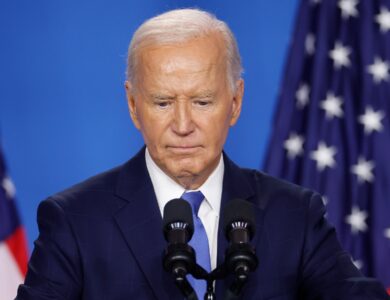Judge Calls DOJ’s Motion To Dismiss Kilmar Abrego Garcia’s Lawsuit ‘Meritless’

A federal court refused the Justice Department’s petitions to dismiss Kilmar Abrego Garcia’s lawsuit over his erroneous deportation to El Salvador, finding one of the motions “meritless.”
U.S. District Judge Paula Xinis, an Obama appointee, did not immediately decide on Abrego Garcia’s request to be transferred to a federal prison in Maryland while awaiting his criminal trial in Tennessee on human trafficking accusations.
Xinis informed Justice Department attorney Bridget O’Hickey, “You made three arguments, defendants, and none are availing … meritless.”
Xinis, who had directed the government to assist Abrego Garcia’s return to the United States after he was deported to El Salvador in March, questioned O’Hickey on whether the US had indicted him to facilitate his return. When Xinis arrived in the United States in June and was promptly charged, the government did not contact his or Abrego Garcia’s counsel.
Abrego Garcia, a Salvadoran native, was one of over 250 Venezuelan and Salvadoran males deported from the United States to El Salvador and incarcerated in CECOT, a maximum-security prison, in mid-March.
Soon after, he sued the government over his deportation. His updated lawsuit requests that Xinis be kept in Maryland rather than Tennessee, where he is now incarcerated, and that his deportation be halted.
“Obviously you did have power to produce Mr. Abrego because you produced him less than a week later.” Xinis told the government, citing the May 21 date of a sealed indictment against Abrego Garcia in Tennessee filed six days after a motion in Maryland that said the government had no power to return him to the U.S.
Xinis said it as “highly problematic” that the government planned to investigate Abrego Garcia and bring him back for trial without alerting her court. “We knew it was coming because eventually it was unsealed,” she told me. Abrego Garcia’s attorneys informed Xinis that they learned of his return to the United States via press reports.
Abrego Garcia was brought to the United States in June and promptly charged on human trafficking charges in Tennessee stemming from a traffic stop in 2019. He is being imprisoned in Tennessee awaiting trial.
O’Hickey argued that Abrego Garcia’s complaint should be dismissed, noting that the government was in continuous talks with El Salvador to send him back to the United States at the same time the Justice Department filed its petition to dismiss.
“How can this representation be one I can credit,” Xinis asked.
“At some point, don’t you have an obligation to me to say, ‘Judge, we have the power, we produced him, moot,’” she asked O’Hickey.
She questioned whether the department’s attorneys in Abrego Garcia’s case knew the indictment in Tennessee was coming.
O’Hickey said that at the time, the U.S. was still negotiating with El Salvador, and “it was uncertain what agreement would be released with the foreign sovereign and how all that would play out.”
“The proceedings were moving in tandem and negotiations were ongoing,” O’Hickey said. She told Judge Xinis, “Defendants certainly took steps to facilitate his return.”
“Is the indictment one of those steps? Since we are talking about my court order,” Xinis replied.
Abrego Garcia “wasn’t under investigation until April … a month after this case started,” Xinis said, a contention O’Hickey denied.
“I don’t believe that’s true, your honor,” O’Hickey responded, contradicting law enforcement statements in Abrego Garcia’s criminal case in Tennessee.
Xinis also denied a second motion to dismiss by the Justice Department, which argued that the lawsuit is now moot, since Abrego Garcia is now in the U.S.
She expressed concern that if Abrego Garcia were released from custody, he could be removed again, but listed actions the government could take to assure the court that her order would be followed.
The government could “name a specific country (where Abrego Garcia could be deported) and then give a reasonable amount of time” to challenge that removal, Xinis said. And she offered that the government could “clarify all of this” in a “binding way,” if it stipulated that he would receive due process — that he would not be removed without notice and would have the opportunity to be heard before a court.





